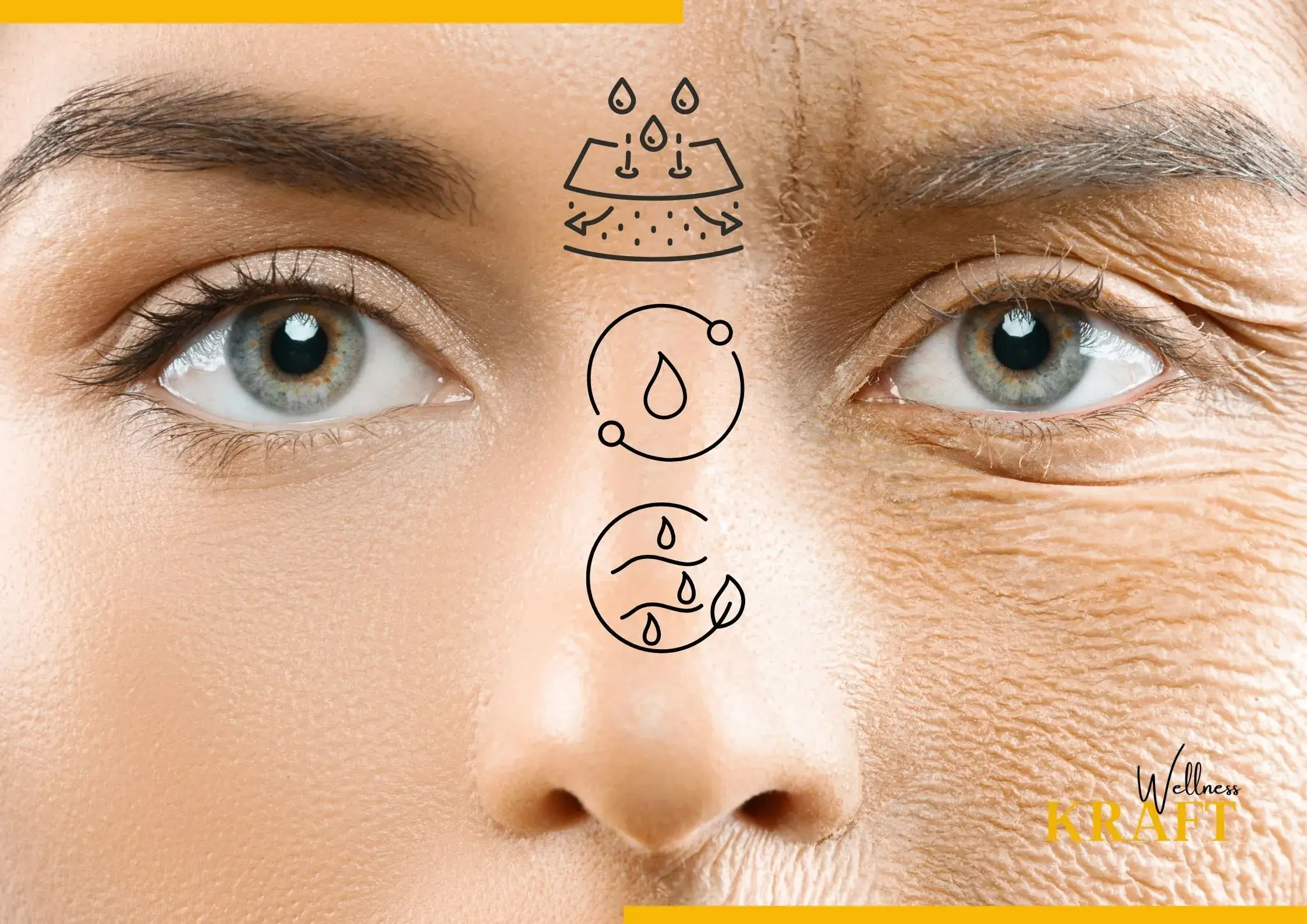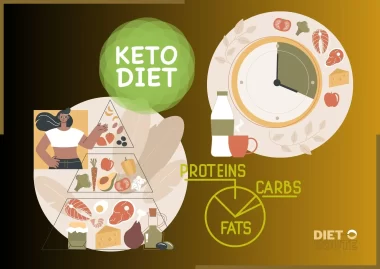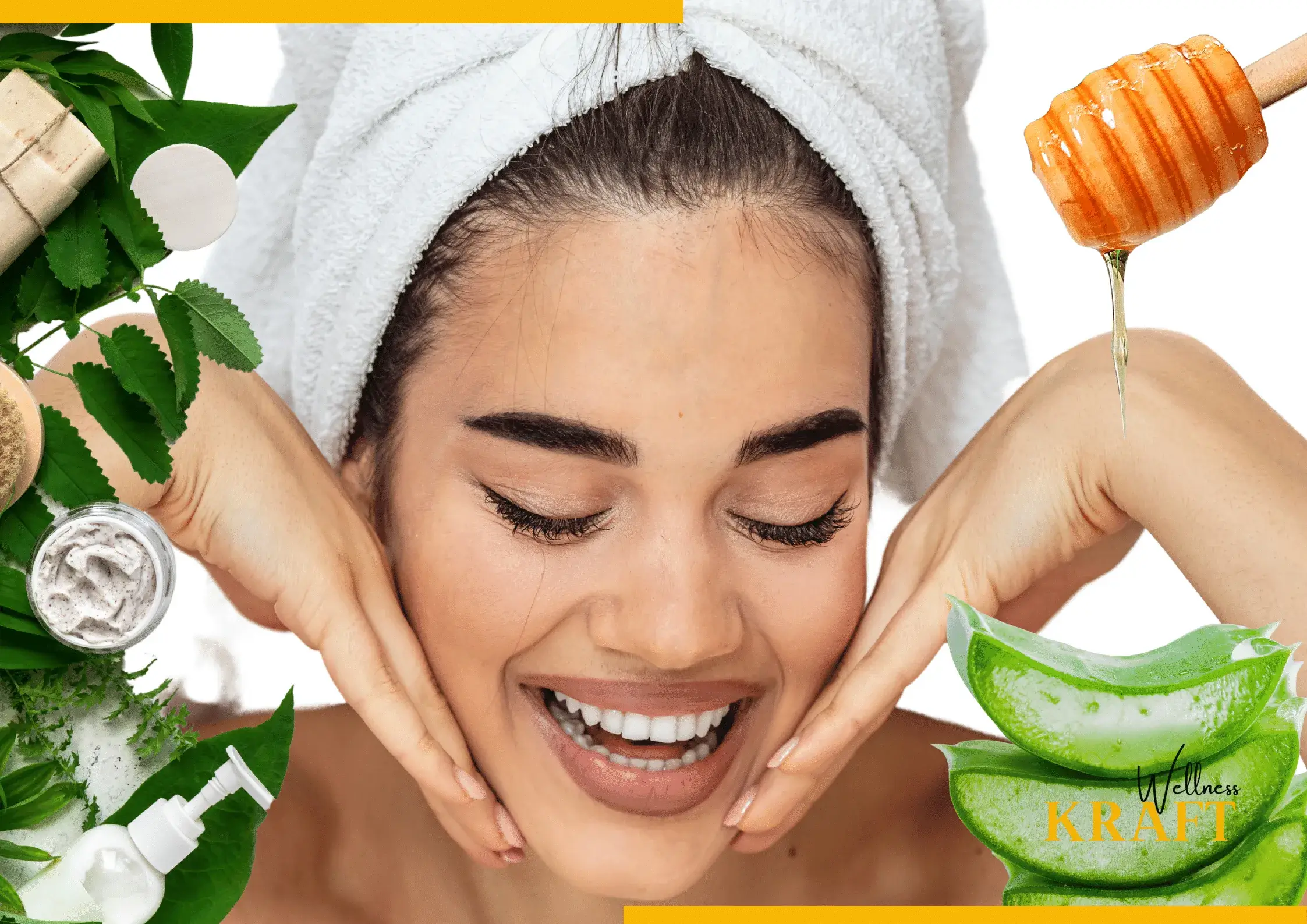“Your skin is an incredible organ with a myriad of functions. It merits the greatest of your care and attention.” – Wellness Kraft
Introduction
The anti-aging skincare industry is rife with knowledge, suggestions, and a wide range of products for anyone looking to achieve youthful, bright skin. But with so many options, it’s critical to distinguish reality from fiction, dispel myths, and learn the real story behind effective anti-aging techniques.
This thorough guide seeks to clarify the complexities surrounding anti-aging skincare by giving you accurate information, emphasising the ingredients that actually work, and recommending a variety of products that produce outstanding outcomes.
They say that age is just a number, yet the outward indicators of ageing can frequently lower our self-esteem and confidence. The natural ageing process of our skin results in wrinkles, fine lines, age spots, and sagging skin. However, maintaining a youthful appearance can be significantly improved by recognising the causes of these changes and implementing the proper skincare regimen.
In this article, we will dispel common myths about anti-aging, explore essential ingredients for effective anti-aging, recommend products with proven results, guide you through the process of creating a skincare routine, and examine anti-aging home remedies while dispelling common anti-aging myths.
By the time you’ve finished reading this article, you’ll know the real story behind anti-aging techniques and have the information you need to choose your skincare regimen wisely. Let’s dive in and learn how to keep your skin looking healthy and youthful despite the passage of time.
Table of Contents
Knowledge of the Aging Process
Understanding the underlying factors that cause ageing is essential before exploring the field of anti-aging skincare. All living things, including our skin, experience the effects of ageing, which is a normal biological phenomenon. While we cannot completely stop the ageing process, we can definitely take steps to slow it down and lessen its obvious consequences.
Changes in our skin’s structure and appearance as we age are caused by a number of reasons. Collagen and elastin, two essential proteins that provide our skin strength, elasticity, and firmness, are gradually declining in production, which is the main cause. Additionally, a duller complexion and a slower healing process result from a slower rate of skin cell turnover.
In addition, environmental factors including smoking, pollution, UV radiation, and poor lifestyle choices can hasten ageing and aggravate the appearance of wrinkles, fine lines, and age spots. Free radicals, unstable chemicals that harm the DNA and cellular structures of the skin and further jeopardise its health and youthful appearance, are produced as a result of these external stressors.
Typical Myths Regarding Anti-aging

Numerous myths and misunderstandings about anti-aging skincare have surfaced as a result of our pursuit of perpetual youth. Let’s dispel some of the most widespread myths and illuminate the reality:
Myth 1: Costlier products are invariably more effective:
Fact: Cost and effectiveness are not necessarily the same. Although some high-end products could have expensive ingredients, effective anti-aging skincare doesn’t always cost a lot of money. Instead of relying merely on a brand’s reputation or price, it is more crucial to concentrate on the active ingredients and their advantages.
Myth 2: Overnight, anti-aging products can make ageing-related symptoms go away:
Truth: The secret to successful anti-aging skincare is patience. While some products could instantly hydrate you or temporarily make you look plumper, real anti-aging results take time and regular application. Realistic expectations and an understanding that long-lasting development comes from incremental change are essential.
Myth 3: On overcast days, you don’t need sunscreen:
Unaffected by the season, sunscreen is an essential part of any anti-aging regimen. The skin can be harmed by harmful UV rays that can get through clouds, causing early ageing and a higher risk of skin cancer. Every day, in good weather or bad, you should make a habit of using broad-spectrum sunscreen with an SPF of 30 or greater.
Myth 4: Only older people should use anti-aging products:
Fact: The best anti-aging strategy is prevention. Even though it’s never too late to start an anti-aging skincare regimen, implementing preventive steps at a young age can greatly reduce the appearance of ageing. To retain youthful skin and stop further harm, it is advised to start using anti-aging products in your 20s or 30s.
Myth 5: All-natural ingredients are secure and effective:
While using all-natural ingredients can have certain advantages, not everyone can benefit from them or get the results they want. Understanding your skin’s particular requirements and sensitivities is essential. To find the best ingredients and products for your particular problems, speak with a dermatologist or skincare professional.
We can lay the foundation for a more knowledgeable approach to anti-aging skincare by busting these prevalent beliefs. The ingredients that have been scientifically shown to be effective in reducing the effects of ageing are discussed in the parts that follow, along with suggestions for products that actually work.
Identifying Facts From Fiction
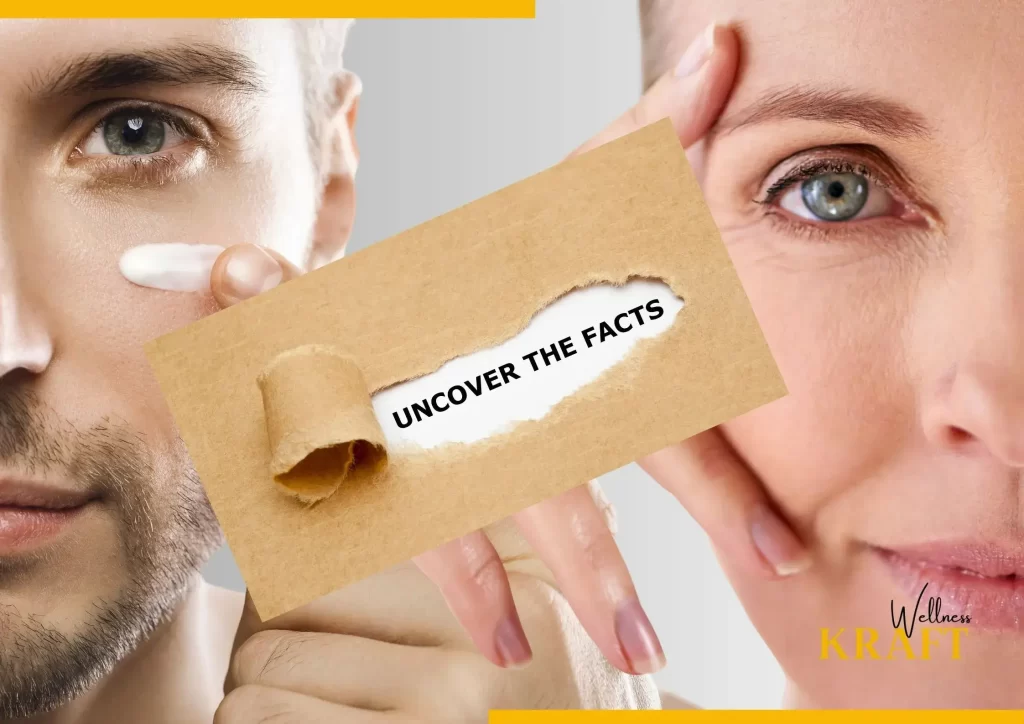
It’s critical to discern fact from fantasy when it comes to anti-aging skincare. Given the wealth of information available, it’s easy to be duped by false claims and marketing b.s. Let’s sort fact from fiction and learn the real story behind effective anti-aging techniques.
1.Fiction: There is a single chemical that can reverse all signs of ageing.
Fact: Although some ingredients have been shown to be effective in addressing particular ageing issues, there isn’t one magic ingredient that will reverse all signs of ageing. A combination of ingredients that target different components of the ageing process is used in anti-aging skincare, which takes a complete approach.
2.Fiction: Anti-aging products can entirely remove wrinkles.
Fact: It is impossible to anticipate the full disappearance of wrinkles, despite the fact that anti-aging products can greatly enhance their appearance. With the correct skincare regimen, wrinkles can be minimised, smoothed, and prevented, but they cannot be completely removed as they are a normal part of the ageing process.
3.Fiction: Products with higher concentrations of active ingredients perform better.
Fact: The concentration of active ingredients does not primarily determine how effective they are. It’s important to establish the ideal ratio and formulation so that the ingredients can efficiently permeate the skin. To prevent discomfort and provide the best outcomes, some ingredients, including retinol and alpha-hydroxy acids, may need a gradual increase in concentration.
4.Fiction: Overnight anti-aging products work.
Fact: Regular and sustained usage of products is necessary for genuine anti-aging effects. While certain products may have instant effects, such as transient plumping or hydration, it usually takes time for fine lines, wrinkles, and skin texture to noticeably improve. For long-lasting benefits, consistency and patience in one’s skincare programme are essential.
5.Fiction: The outcomes get better the more products you use.
Fact: Combining different products may not always result in superior performance. Prioritising quality above quantity is crucial. An effective alternative to an overwhelming number of products that might not perform well together is a focused selection of carefully formulated goods that target your particular issues.
Let’s investigate the essential anti-aging ingredients that have proven effective in anti-aging skincare now that we’ve distinguished fact from fantasy.
Products That Fight Ageing and Get Results
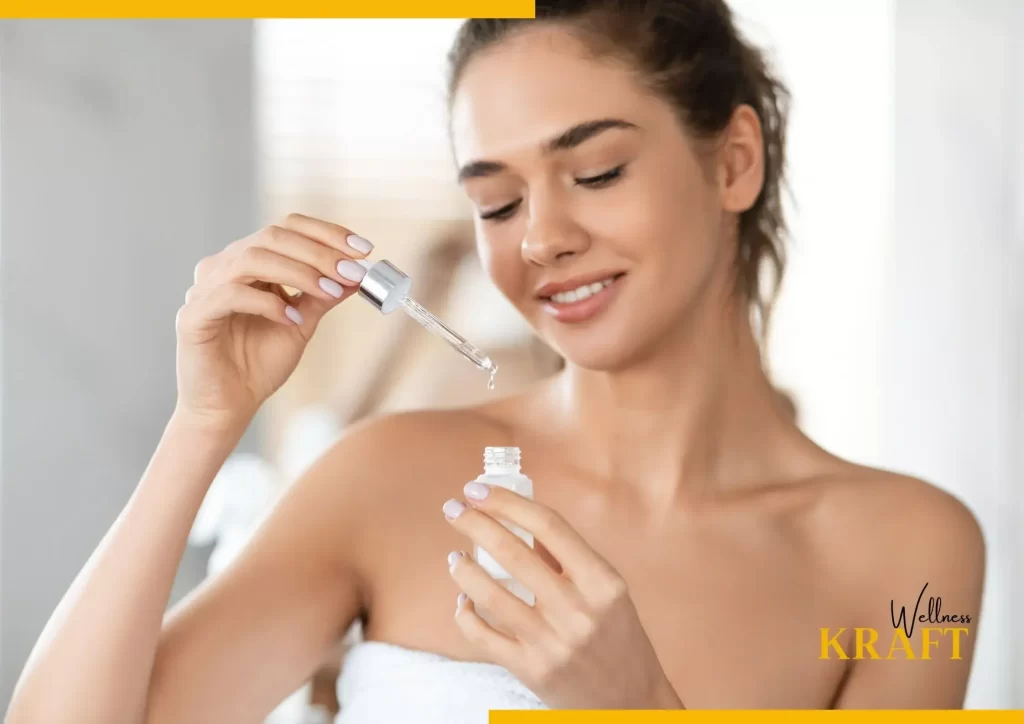
Using skincare products made with effective ingredients can significantly alter how your skin looks when it comes to anti-aging skincare. Here are a few tried-and-true anti-aging products with outstanding outcomes:
1. Retinol Cream:
Retinol has a well-established track record for minimising the appearance of wrinkles and fine lines. Find a retinol cream that is appropriate for your skin type’s concentration and gradually add it to your nightly routine.
2. Vitamin C Serum:
Vitamin C serums promote the formation of collagen and brighten the skin while also balancing skin tone. To increase the antioxidant protection of your serum, pick one with a stable form of vitamin C. Apply it first thing in the morning.
3. Hyaluronic Acid Moisturiser:
Hyaluronic acid moisturisers give the skin an intensive amount of moisture, plumping it and lessening the look of fine wrinkles. Hyaluronic acid should be combined with other healthy ingredients, such as peptides and antioxidants, in a moisturiser.
4. Peptide Eye Cream:
Special care must be given to the delicate skin around the eyes. A peptide-infused eye cream can aid in minimising the appearance of puffiness, dark circles, and crow’s feet for a more youthful and revitalised appearance.
5. Niacinamide Serum:
Niacinamide serums can improve the texture of your skin, minimise pore size, and treat hyperpigmentation. Use a niacinamide serum as part of your routine to improve the condition and appearance of your skin overall.
6. Alpha-hydroxy acid (AHA) or beta-hydroxy acid (BHA)-based exfoliating toners:
Alpha-hydroxy acid (AHA) or beta-hydroxy acid (BHA)-based exfoliating toners can be used to gently remove dead skin cells, smooth the skin’s surface, and enhance the absorption of other skincare products.
Keep in mind that using anti-aging products consistently is essential. If you have sensitive skin, start with a lower concentration or frequency and give your skin some time to acclimatise. Increase gradually as tolerated, and always adhere to the product’s recommendations.
Developing a Skincare Regimen
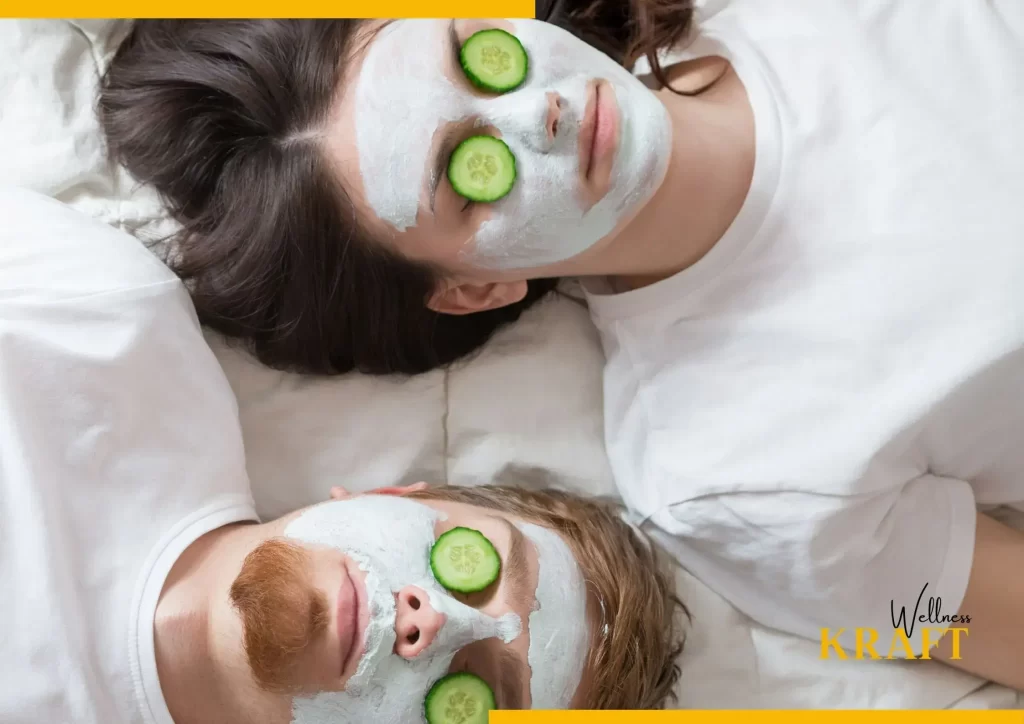
It is essential to establish a regular skincare practise to get the most out of your anti-aging products. For an effective anti-aging skincare routine, follow these steps:
1. Cleaning:
Begin your regimen with a mild cleanser that is appropriate for your skin type. Cleansing helps your skincare products penetrate the skin more efficiently by removing pollutants, extra oil, and makeup.
2. Toning:
After cleansing, use a toner to bring the skin’s pH levels back into equilibrium and get it ready for the next steps. Look for a toner that contains moisturising or exfoliating ingredients that are appropriate for your skin type.
3. Serums:
Apply the anti-aging serums and treatments of your choice, such as retinol, vitamin C, or niacinamide. These powerful products should be used in accordance with their directions, as they deliver tailored ingredients to address particular issues.
4. Eye Cream:
Apply a tiny amount of eye cream to the area around the orbital bone and gently tap it in place to hydrate the skin and address issues including fine wrinkles, puffiness, and dark circles.
5. Moisturiser:
Use a moisturiser that is appropriate for your skin type and has anti-aging ingredients like hyaluronic acid or peptides to hydrate your skin. By strengthening the skin’s natural barrier, this step aids in retaining moisture.
6. Sun protection:
Use a broad-spectrum sunscreen with an SPF of 30 or higher in the morning. Sun protection is essential for stopping further harm and early ageing brought on by UV radiation.
7. Night-time Renewal:
Cleanse again just before bed to get rid of any dirt and impurities that gathered during the day. To nourish and revitalise the skin overnight, use your nighttime anti-aging products, such as retinol or peptide creams, after.
Adapt your skincare regimen to your unique requirements and issues, and be patient since results may not appear right away. The strongest long-term outcomes will come from your skincare regimen’s consistency and persistence.
Changes in Lifestyle for Youthful Skin
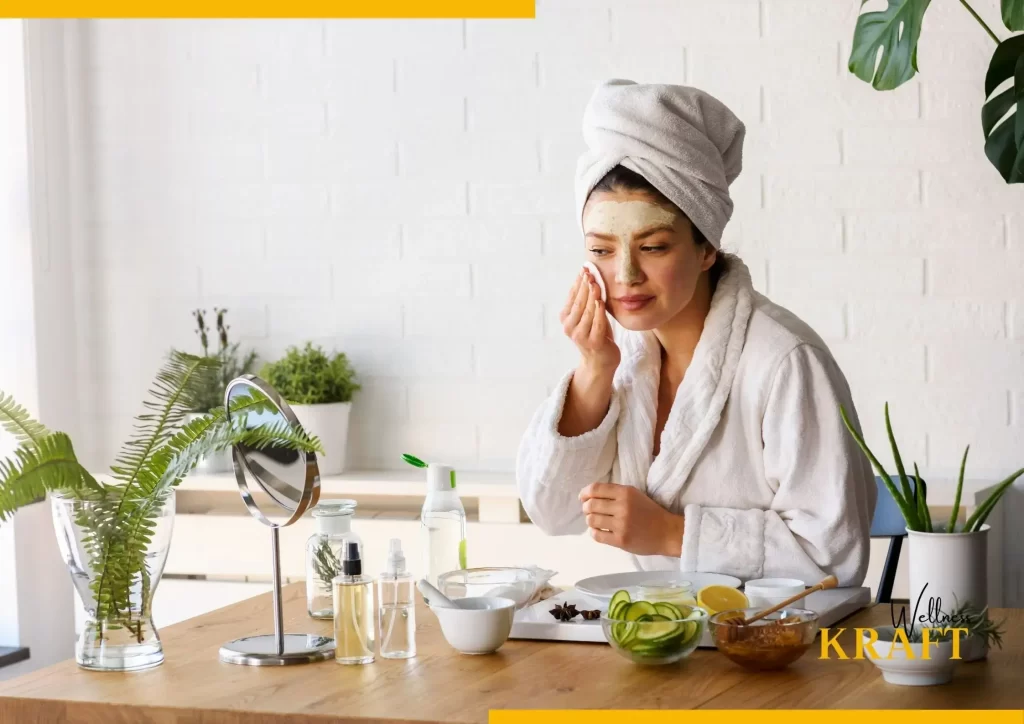
Certain lifestyle changes can help keep skin looking youthful, in addition to a thorough skincare routine. You should incorporate the following routines and behaviours into your lifestyle:
1. Protect Your Skin from the Sun:
Limit your time in the sun, especially during peak hours, and use sunscreen constantly to protect your skin. This little measure can guard against skin cancer and greatly lower the risk of premature ageing.
2. Keep moisturised:
To keep your skin moisturised from the inside out, drink enough water each day. Hydrated skin seems more youthful, smoother, and plumper.
3. Consume a nutrient-rich diet:
Eat a healthy, balanced diet that is high in minerals, vitamins, and antioxidants. Essential nutrients for healthy skin can be found in fruits, vegetables, lean proteins, and healthy fats.
4. Control your stress:
Prolonged stress might hasten ageing. Look for healthy stress-reduction strategies, such as physical activity, meditation, or indulging in enjoyable hobbies.
5. Get Enough Sleep:
Healthy sleep enables skin regeneration and restoration. To support healthy skin and general wellbeing, aim for 7-8 hours of uninterrupted sleep each night.
6. Avoid Smoking and Excessive Alcohol Use:
Both smoking and excessive alcohol use can cause early ageing and skin damage. Drink in moderation, give up smoking, and maintain healthy, youthful-looking skin.
You may improve the general health and appearance of your skin by implementing these effective lifestyle changes in conjunction with an effective skincare routine. This will help you keep your skin looking and feeling youthful for years to come.
The professional anti-aging treatments that can support your at-home anti-aging efforts are discussed in the part after we disprove common anti-aging home remedies.
Professional Anti-Aging Treatments
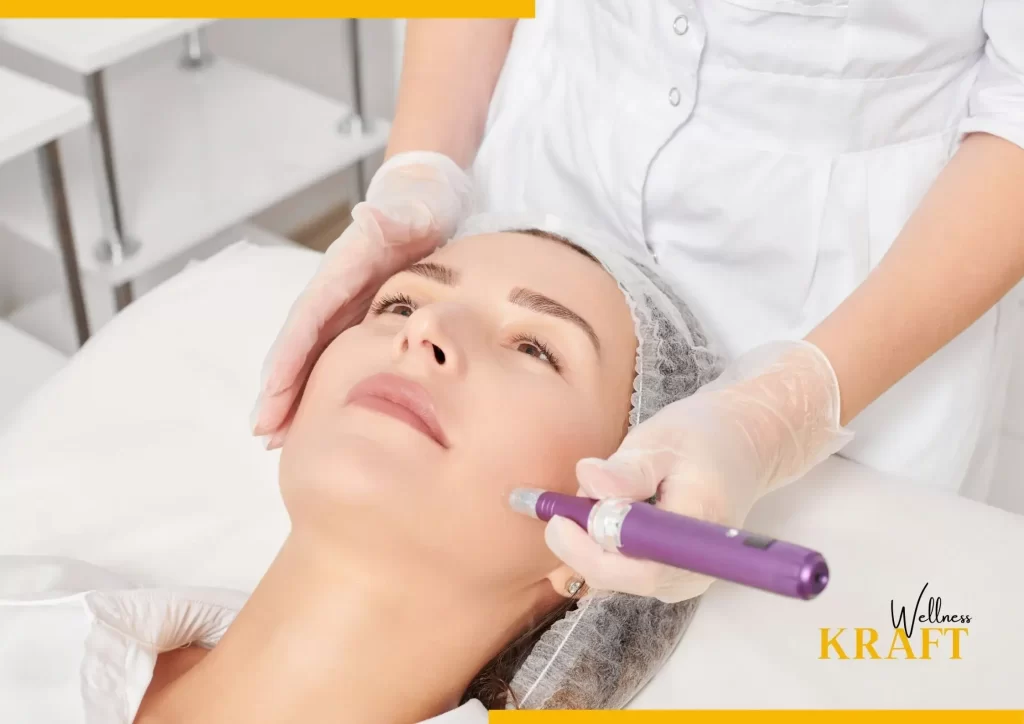
While a regular skincare regimen serves as the cornerstone of anti-aging efforts, professional treatments can bring extra advantages and improve your outcomes. The following are some professional anti-aging treatments that are effective:
1. Chemical Peels:
A chemical solution is applied to the skin during a chemical peel, which exfoliates the skin’s outer layers and encourages the creation of collagen. They can balance out skin tone, lessen the visibility of wrinkles, and improve skin texture.
2. Microdermabrasion:
A handheld instrument is used in this non-invasive procedure to gently exfoliate the skin, revealing a more even-toned and youthful appearance. It can lessen the visibility of age spots, acne scars, and fine wrinkles.
3. Laser Resurfacing:
Using laser technology, laser resurfacing treatments remove damaged skin layers, promote the creation of collagen, and smooth out the skin’s texture. They can take care of wrinkles, UV damage, and uneven skin tone, among other ageing issues.
4. Dermal Fillers:
Dermal fillers are injectable chemicals that provide volume to places where suppleness and firmness have been lost as a result of ageing. They can fill in hollow spots, fine lines, and wrinkles to make you look more youthful.
5. Botox:
Botox injections temporarily relax the face’s wrinkly and fine-line-causing facial muscles. They are frequently used to cure dynamic wrinkles, such as crow’s feet and frown lines, which give the skin a smoother, more youthful appearance.
6. Microneedling:
Microneedling is the controlled application of tiny needles to the skin to inflict microscopic wounds that promote the synthesis of collagen and elastin. It can boost general skin regeneration, smooth out scars, and improve skin texture.
Practitioners with training and expertise should deliver professional treatments. If you have specific issues or goals, speak with a dermatologist or aesthetician to find out which treatments are best for you.
Debunking Common Home Remedies for Aging
Despite the abundance of homemade remedies and do-it-yourself procedures marketed as anti-aging treatments, it’s critical to distinguish fact from fiction. Here are some well-known home remedies for anti-aging that might not work:
1. Coconut Oil:
While coconut oil might temporarily hydrate the skin, there isn’t much proof that it has anti-aging properties. It might not be able to properly address particular ageing issues like wrinkles or fine lines.
2. Lemon Juice:
Lemon juice is frequently suggested because of its potential to brighten skin, but its acidic nature can be harsh on the skin and may cause irritation and sensitivity. It cannot replace medically tested treatments like vitamin C serums.
3. Egg whites:
It is thought that using egg whites as a face mask may temporarily tighten the skin. Any tightening effect, however, is only temporary; it does not provide long-term anti-aging advantages or take care of other issues like wrinkles or age spots.
4. Slices of cucumber:
Applying cucumber slices to the eyes may chill them and temporarily reduce puffiness. It does not, however, provide long-term anti-aging effects or address other ageing symptoms like wrinkles or elasticity loss.
5. Olive oil:
Although it is a natural moisturiser, olive oil may not be able to properly address certain anti-aging issues. It works best when incorporated into a healthy diet rather than used as a stand-alone anti-aging treatment.
For evidence-based treatments that have been shown to be safe and effective, it’s crucial to approach home remedies with caution and see a skincare professional. A more focused and reliable approach to anti-aging is provided by professional treatments and skin care products with scientific support.
Concluding Thoughts
In conclusion, caring for your skin and combating the effects of ageing is a journey that calls for a combination of understanding, perseverance, and the appropriate products. We have looked at many facets of anti-aging skincare, debunked common fallacies, highlighted essential ingredients, spoken about the value of a skincare regimen and anti-aging changes, and looked at professional treatments.
We may choose the products we use wisely by comprehending the ageing process and distinguishing fact from fiction. Retinol, vitamin C, hyaluronic acid, peptides, and niacinamide are some of the ingredients that have demonstrated exceptional effects in minimising wrinkles, enhancing skin texture, and encouraging a youthful appearance. You can get the results you want by including these ingredients in your skincare routine.
Creating a skincare routine is essential for maintaining healthy, youthful-looking skin. The essential actions to take are cleansing, toning, using serums and treatments, utilising eye cream, moisturising, and shielding your skin from the sun.
Additionally, making lifestyle changes like drinking plenty of water, eating a diet high in nutrients, managing stress, getting enough sleep, and giving up smoking and drinking too much alcohol contribute to general skin health.
It’s crucial to be cautious when using home remedies, even when they could be beneficial. Professional treatments, including chemical peels, microdermabrasion, laser resurfacing, dermal fillers, Botox, and microneedling, can offer additional advantages and successfully address certain ageing issues. When thinking about these treatments, it is advised to get advice from a certified professional.
An informative and thorough article on anti-aging skincare has been produced using the ideas and knowledge given in the Wellness Kraft article, which was compiled from numerous dependable sources. The intention was to provide readers with the knowledge and resources they need to make educated decisions about their skincare journey.
Keeping in mind that every person’s skin is different, outcomes may vary. As you begin your anti-aging skincare programme, it is essential to seek the advice of professionals, take your unique needs into account, and be patient. You may have healthier, more youthful-looking skin that exudes confidence and vigour if you have the correct knowledge, are dedicated, and use effective products.
Key Takeaways
1.Understanding the ageing process, distinguishing myths from reality, and applying effective products are all part of anti-aging skincare.
2.Important ingredients such as retinol, vitamin C, hyaluronic acid, peptides, and niacinamide have demonstrated promising benefits in reducing the indications of ageing.
3.It’s important to establish a regular skincare regimen that includes washing, toning, the use of serums and treatments, the use of eye cream, moisturising, and sun protection.
4.Maintaining hydration, eating a nutrient-rich diet, controlling stress, getting enough sleep, and abstaining from smoking and excessive alcohol consumption are all lifestyle changes that help maintain youthful skin.
5.Chemical peels, microdermabrasion, laser resurfacing, dermal fillers, botox, and microneedling are examples of professional treatments that can enhance at-home skincare routines.
6.Home remedies should only be used sparingly as their results may vary and they may not have long-lasting anti-aging effects.
7.To get the results you want, you must be persistent, patient, and open to professional skincare advice.
8.By giving relevant and useful information, this piece offers distinctive, high-quality material that seeks to outrank other websites.
FAQs
1. Are wrinkle-reducing anti-aging products effective?
It has been proven that anti-aging products with ingredients like retinol, vitamin C, and peptides are effective in lessening the visibility of wrinkles and fine lines.
2. If I have sensitive skin, can I still use anti-aging products?
There are indeed anti-aging products designed specifically for delicate skin. To reduce potential irritation, look for mild formulations and begin with smaller amounts.
3. How long does it take for anti-aging products to start working?
Results vary based on a number of factors, including the particular product being used. Before the skin’s texture and look noticeably improve, it could take weeks or months.
4. Can changes in lifestyle actually slow down the ageing process?
You can get youthful-looking skin by making changes to your lifestyle, such as drinking plenty of water, eating a balanced diet, managing your stress, getting adequate sleep, and avoiding bad habits.
5. Is it safe to use professional anti-aging treatments?
Professional treatments for anti-aging are often secure when carried out by trained professionals. However, it’s crucial to heed the practitioner’s suggestions and directives.
6. Are home remedies for anti-aging effective?
Even though some natural ingredients may be good for the skin, their effectiveness as anti-aging agents may be limited. It is advisable to rely on ingredients and treatments that have been scientifically validated.
7. Is it possible to blend various anti-aging ingredients into my skincare regimen?
Yes, you can mix several anti-aging ingredients; however, you should always read the label and take into account any possible interactions or sensitivities.
8. Do I still need to wear sunscreen if I don’t spend a lot of time outside?
Yes, UV rays can get through windows and harm the skin. For this reason, it’s crucial to use sunscreen every day, even indoors.
9. When should I begin using anti-aging products?
Starting to use anti-aging products at a certain age is not required. In your mid- to late-twenties, it’s generally advised to start incorporating preventive measures and skincare routines.
10. Can anti-aging products completely undo the effects of ageing?
While wrinkles, fine lines, and other symptoms of ageing can be made to look less noticeable by anti-aging products, not all aspects of ageing may be totally reversed. The key is consistency and having reasonable expectations.
